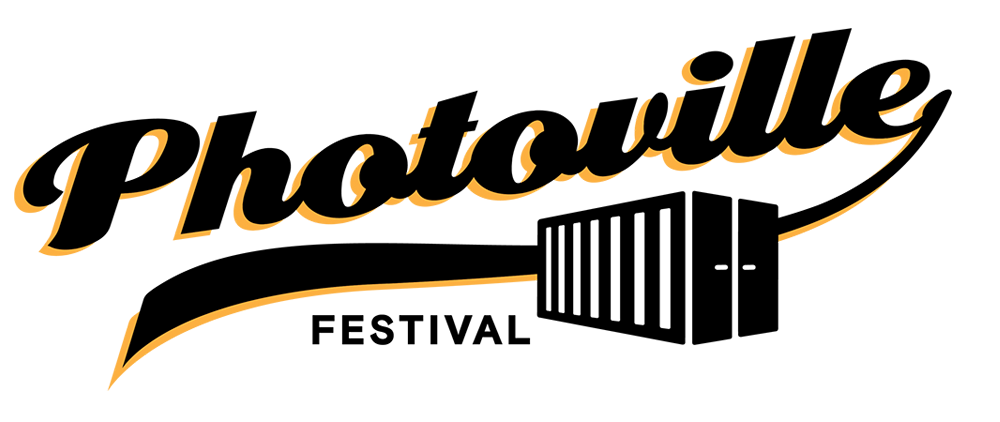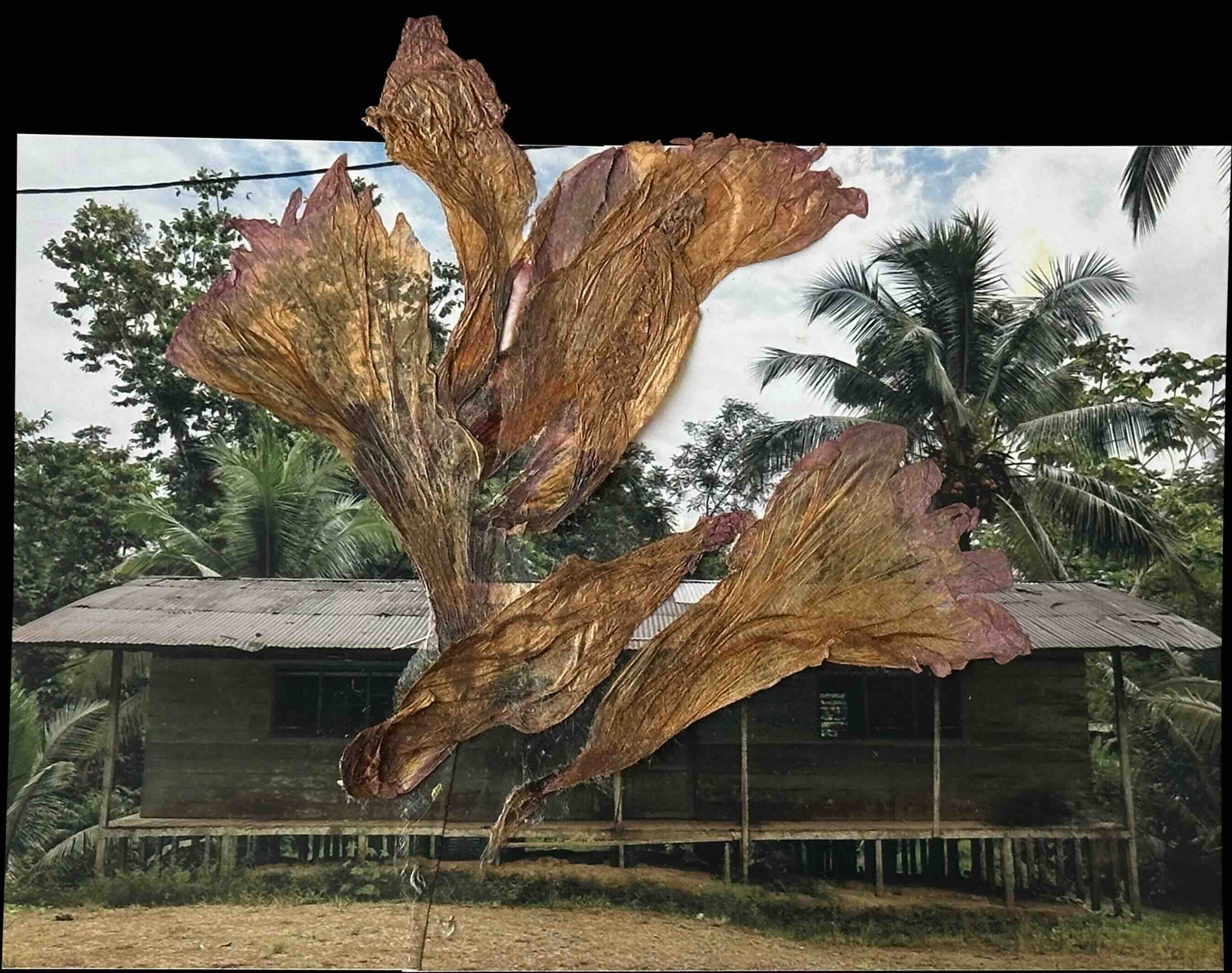

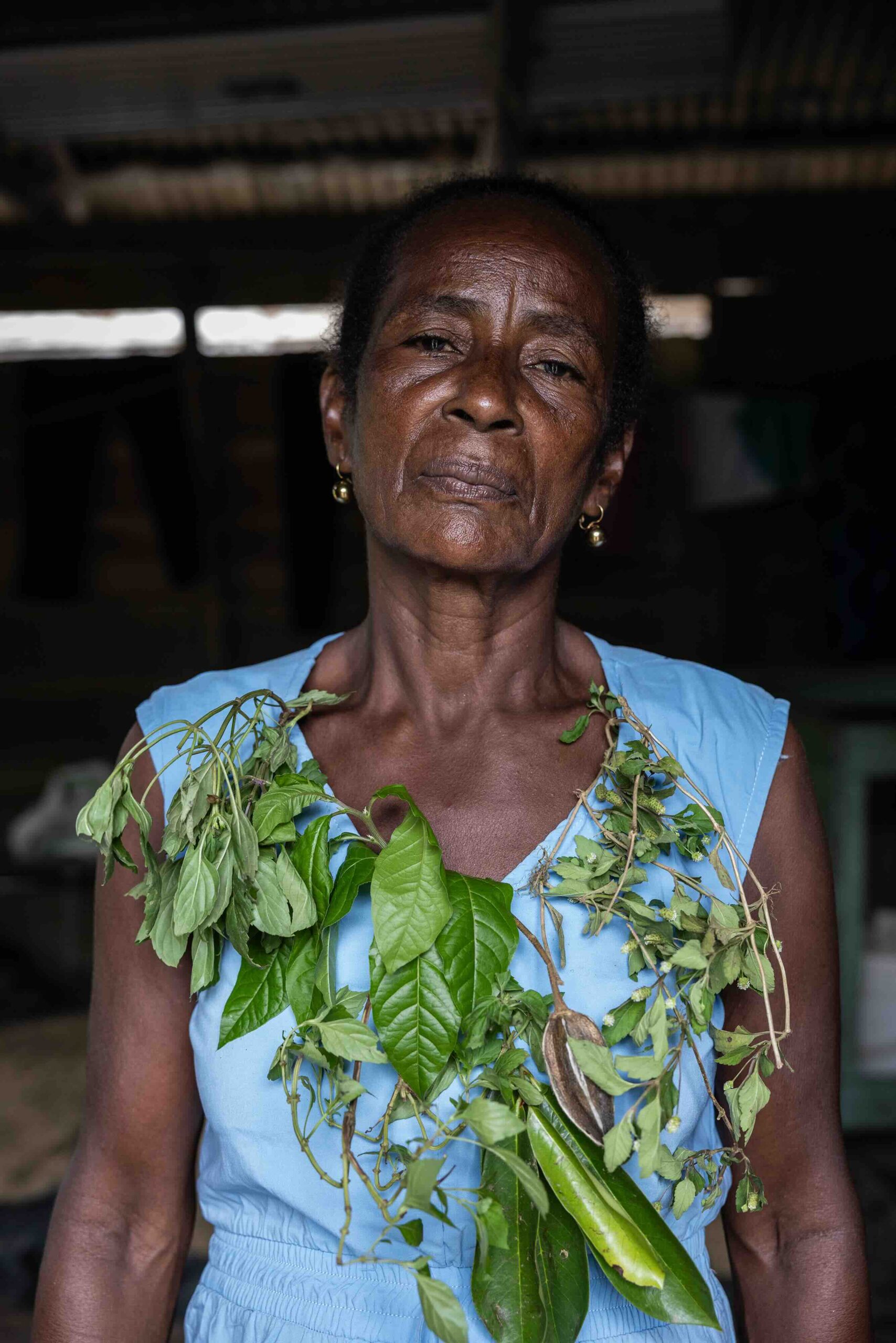
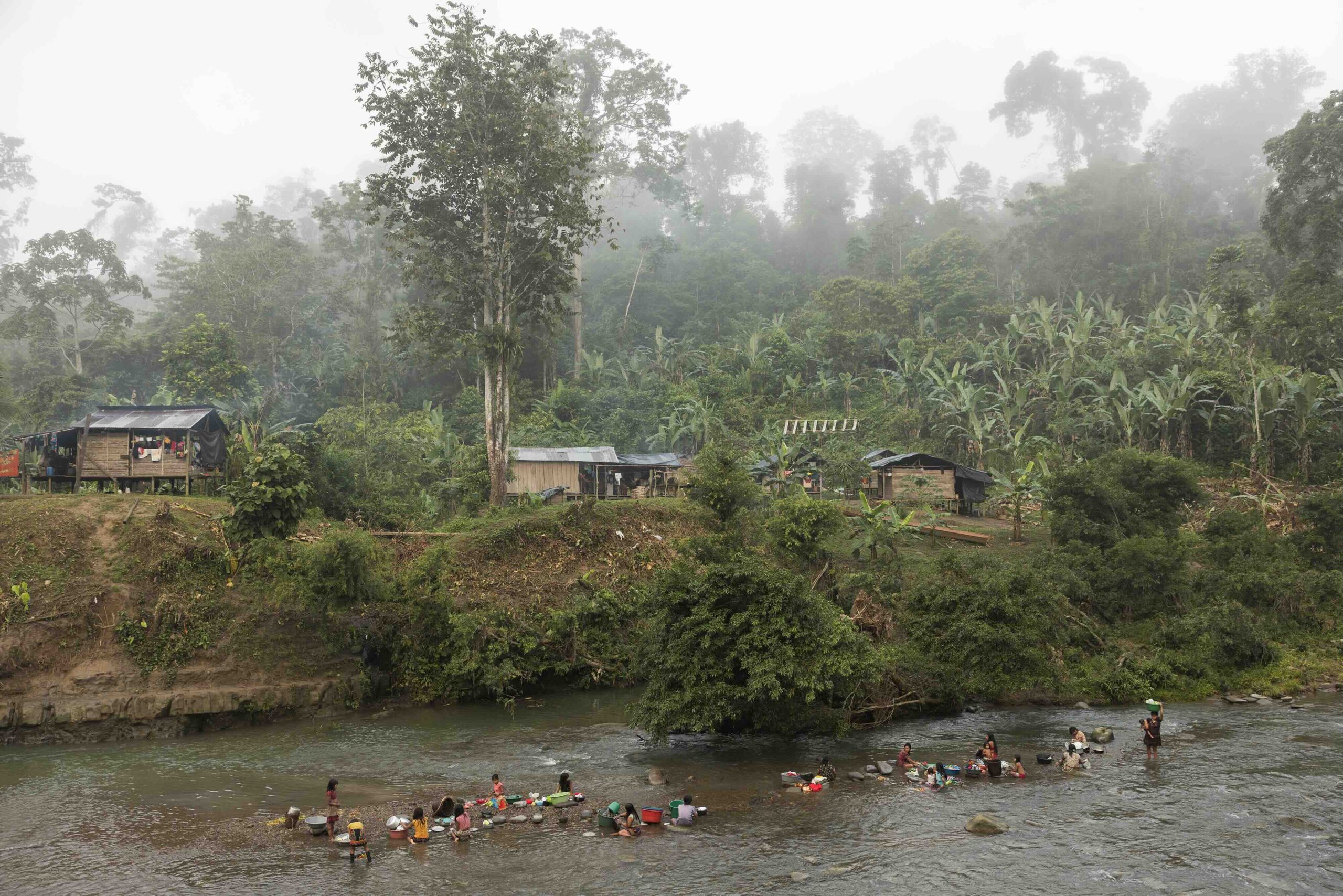
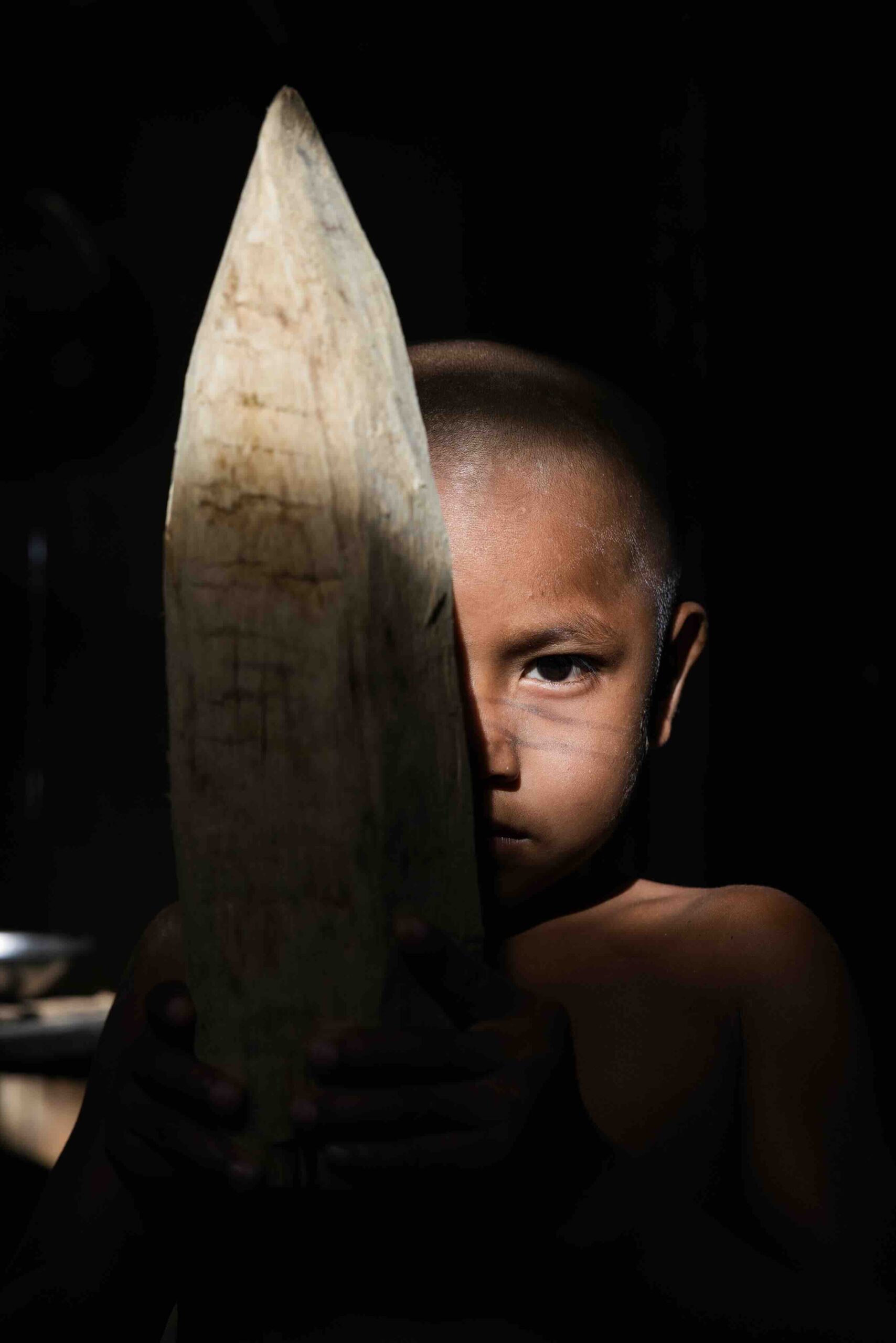
Tens of thousands of people in the remote communities of Alto Baudó, in Colombia’s Chocó Department, are terrorized by armed groups. Many are afraid to even leave their homes. Mostly of indigenous Embera and of African descent, they fear encountering armed groups, being forcibly recruited, or being injured by a mine explosion. If they need medical care, it can take up to 15 hours to find a health center and two to three days to reach a hospital.
The presence of armed groups in this area, bordered by the Baudó River and surrounded by tropical rainforest, prevents people from moving, fishing, harvesting food, attending school, or congregating for any reason. Violence forced more than 49,000 inhabitants to confine themselves, like Carmen did, in 2024. Nevertheless, the women of these communities are guardians—of their people and the natural environment. They see how violence sickens inhabitants and the territory, and they work to create healing.
For “Riografías: Women Healers of Alto Baudó,” Colombian photographer Fernanda Pineda and Doctors Without Borders/Médecins Sans Frontières (MSF) intercultural mediators worked with healers and midwives in Alto Baudó to ritually mend the wounds of their home. They applied sutures with medicinal plants to distressed photographs of locations haunted by harm—rebuilding with flowers what violence has broken. The participating community members were empowered to shape their own stories.
***
Decenas de miles de personas en las remotas comunidades de Alto Baudó, en el departamento del Chocó colombiano, se encuentran aterrorizadas por grupos armados. Muchos temen incluso salir de sus hogares.
En su mayoría indígenas embera y afrodescendientes, temen encontrarse con grupos armados, ser reclutados a la fuerza o resultar heridos por la explosión de una mina. Si necesitan atención médica, puede tomar hasta 15 horas encontrar un centro de salud y dos o tres días llegar a un hospital.
La presencia de grupos armados en esta zona, bordeada por el río Baudó y rodeada de selva tropical, impide a las personas desplazarse, pescar, cosechar alimentos, asistir a la escuela o congregarse por cualquier motivo. La violencia obligó a más de 49.000 habitantes a confinarse, como lo hizo Carmen, en 2024. Sin embargo, las mujeres de estas comunidades son guardianas de su pueblo y del entorno natural. Ven cómo la violencia enferma a los habitantes y al territorio, y trabajan para sanar.
Para “Riografías: Mujeres sanadoras del Alto Baudó”, la fotógrafa colombiana Fernanda Pineda y mediadores interculturales de Médicos Sin Fronteras (MSF) trabajaron con curanderos y parteras en Alto Baudó para sanar ritualmente las heridas de su hogar. Aplicaban suturas con plantas medicinales a fotografías de lugares devastados por el daño, reconstruyendo con flores lo que la violencia ha roto. Los miembros de la comunidad participantes se empoderaron para construir sus propias historias.
Artist Bios
-
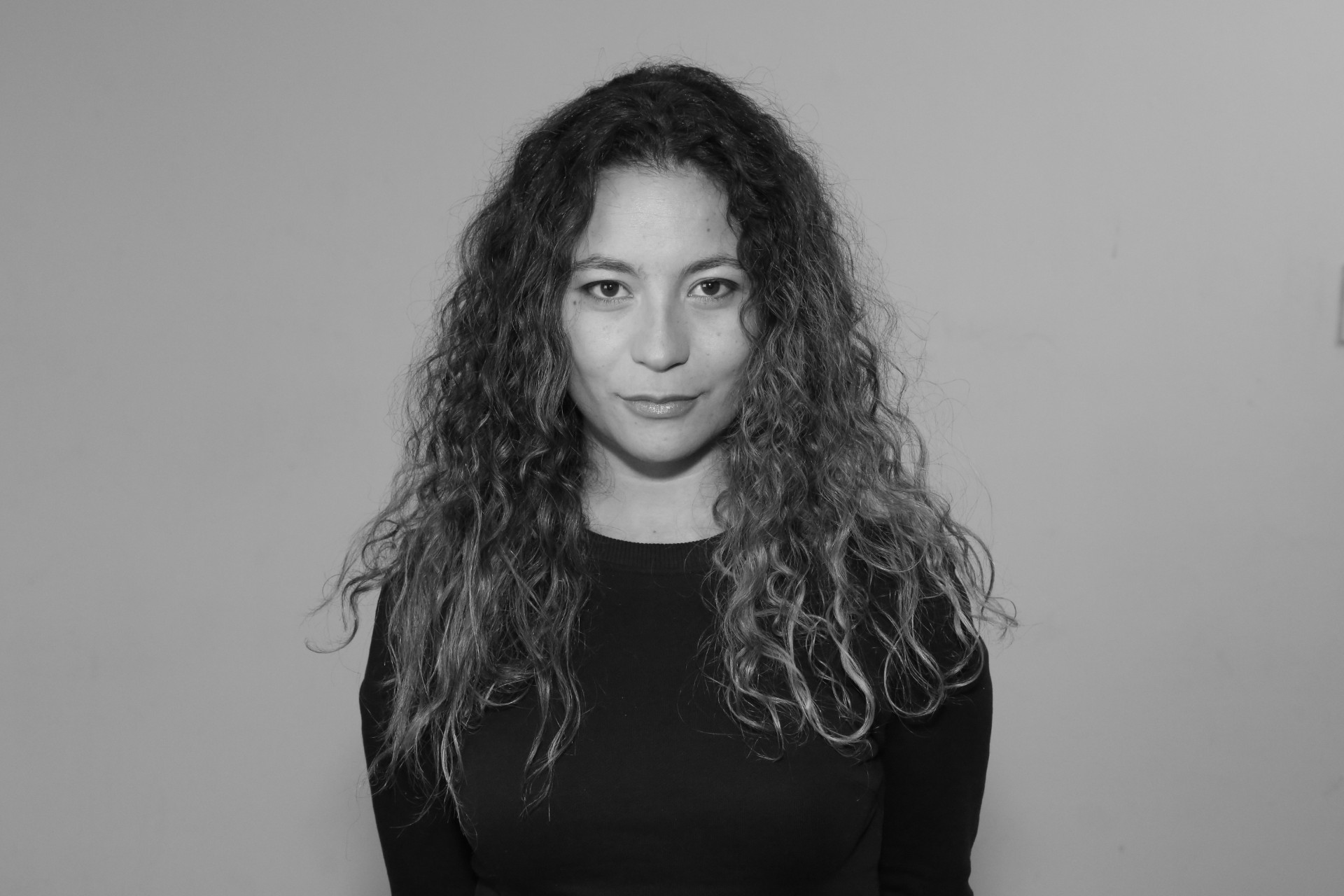
Fernanda Pineda Palencia
Fernanda Pineda is a Colombian photographer and filmmaker focused on documenting identity, diversity, and social issues in communities across Colombia and Latin America. Her collaborative creation approach actively engages protagonists in shaping visual stories, blending artistic exploration and narrative to inspire reflection and action.
Her work has been recognized and exhibited in spaces such as LATINAS at Rivoli Galerie in Paris (2022), the Latin American Foto Festival at the Bronx Documentary Center (2023), ArtBo (2024), PhotoVogue Milan (2025), and Arte X Arte Buenos Aires (2025).
In 2024, she received the Vision Sud-est Award at Visions du Réel for The Shadow of Yolüja and was selected for the Joop Swart Masterclass by World Press Photo.
Pineda sees photography as a space for symbolic exploration, where images become tools for mutual recognition and social transformation.
***
Fernanda Pineda, fotógrafa y cineasta colombiana enfocada en documentar la identidad, la diversidad y las problemáticas sociales en comunidades de Colombia y Latinoamérica. Su enfoque de creación colaborativa involucra activamente a los protagonistas en la construcción de relatos visuales, fusionando exploración artística y narrativa para generar reflexión y acción.
Su trabajo ha sido reconocido y exhibido en espacios como LATINAS en la Rivoli Galerie de París (2022), el Latin American Foto Festival en el Bronx Documentary Center (2023), ArtBo (2024), PhotoVogue Milán (2025) y Arte X Arte Buenos Aires (2025).
En 2024, recibió el Vision Sud-est Award en Visions du Réel por The Shadow of Yolüja y fue seleccionada para la Joop Swart Masterclass de World Press Photo.
Pineda concibe la fotografía como un espacio de exploración simbólica, donde las imágenes se convierten en herramientas de reconocimiento mutuo y transformación social.
Organizations
-

Doctors Without Borders/Médecins Sans Frontières (MSF)
Doctors Without Borders provides lifesaving medical care to the people who need it most. They work in more than 70 countries, including many places where others can’t or won’t go, and deliver free health services to people no matter their race, ethnicity, religion, or politics.
When an emergency hits, Doctors Without Borders teams are often among the first on the ground. That’s because they’re independently funded, meaning they take no government funding and don’t have to wait for grants or raise earmarked funds. When a crisis strikes, they can assess the needs and start caring for people. Over 90 percent of their program staff are locally hired. This ensures that they can respond quickly in emergencies and stay connected to communities.
Doctors Without Borders responds to natural disasters like droughts, floods, and earthquakes and human-made disasters linked to the climate emergency. They treat people caught in conflict or forced to flee extreme violence; provide mental health care to people recovering from trauma; and care for communities during disease outbreaks, vaccinating people to protect them.
Doctors Without Borders speaks out about the suffering they see and the causes of emergencies, and break down barriers preventing people from getting the care they need.
**
Médicos Sin Fronteras brinda atención médica vital a quienes más la necesitan. Trabajan en más de 70 países, incluyendo muchos lugares a los que otros no pueden o no quieren ir, y ofrecen servicios de salud gratuitos a personas sin importar su raza, etnia, religión o ideología política.
Cuando ocurre una emergencia, los equipos de Médicos Sin Fronteras suelen ser de los primeros en llegar al terreno. Esto se debe a que se financian de forma independiente, lo que significa que no reciben fondos gubernamentales ni tienen que esperar subvenciones ni recaudar fondos específicos. Cuando se desata una crisis, pueden evaluar las necesidades y comenzar a atender a las personas. Más del 90% del personal de sus programas es contratado localmente. Esto garantiza una respuesta rápida en emergencias y un contacto continuo con las comunidades.
Médicos Sin Fronteras responde a desastres naturales como sequías, inundaciones y terremotos, así como a desastres provocados por el hombre relacionados con la emergencia climática. Atienden a personas atrapadas en conflictos o obligadas a huir de la violencia extrema. Brindamos atención de salud mental a personas que se recuperan de traumas y atendemos a las comunidades durante brotes de enfermedades, vacunando a las personas para protegerlas.
Médicos Sin Fronteras denuncia el sufrimiento que observa y las causas de las emergencias, y derriba las barreras que impiden que las personas reciban la atención que necesitan.
Riografías: Women Healers of Alto Baudó // Riografías: Mujeres sanadoras del Alto Baudó
Featuring: Fernanda Pineda Palencia
Curated by: Melissa Pracht Julieta Garofalo
Locations
View Location Details Download a detailed map of this location Brooklyn Bridge Park – Emily Warren Roebling Plaza1 Water St
Brooklyn, NY 11201
This location is part of Brooklyn Bridge Park
Explore other locations and exhibitions nearby
Special thanks to the communities and residents of Chachajo, Puesto Indio, and Mojaudó, whose support made this project possible; to the women healers of these municipalities, who actively participated and shared their ancestral knowledge in the development of this project; and to Silvia Parra, an expert in differential approaches, for her guidance and support throughout the project.
Special thanks to Skink Ink Fine Art Printing in Brooklyn for generously providing complimentary printing services for this exhibit.
***
Agradecemos especialmente a las comunidades y residentes de Chachajo, Puesto Indio y Mojaudó, cuyo apoyo hizo posible este proyecto; a las sanadoras de estos municipios, quienes participaron activamente y compartieron sus conocimientos ancestrales en el desarrollo de este proyecto; y a Silvia Parra, experta en enfoques diferenciales, por su guía y apoyo durante todo el proyecto.
Agradecemos especialmente a Skink Ink Fine Art Printing de Brooklyn por la generosidad de brindar servicios de impresión gratuitos para esta exhibición.
The views and opinions expressed in this exhibit are those of the exhibition artists and partners and do not necessarily reflect the views or positions of Photoville or any other participants and partners of the Photoville Festival.
Related Events
Healing the Wounds of Our Homes: A Photo Intervention Workshop
Join photographer Fernanda Pineda and Doctors Without Borders/Médecins Sans Frontières (MSF) for a photo intervention activity of distressing and mending, as we symbolically heal the special places in our lives that carry pain or loss with the help of local plants and herbs with healing properties.
Learn More